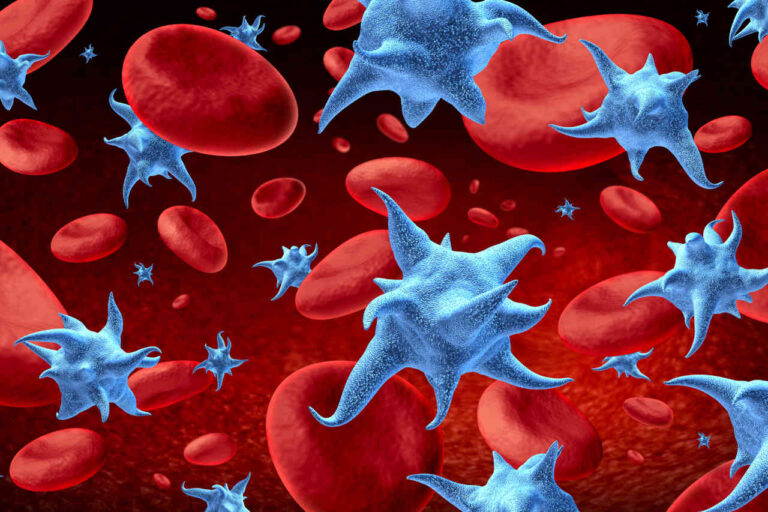
Rinvoq (upadacitinib) is a medication for the treatment of mild to severe rheumatoid arthritis, psoriatic arthritis, atopic dermatitis, moderate to severe ulcerative colitis, and ankylosing spondylitis. The medication is currently available as a brand name only. It comes as a tablet that is taken daily. It is usually prescribed to patients who have not responded adequately to tumor necrosis factor (TNF) blocker medications.
What Is Rinvoq?
Rinvoq is a Food and Drug Administration-approved prescription drug. It treats inflammatory conditions such as eczema, arthritis, and ulcerative colitis. It is usually prescribed to patients who have had little to no success with other treatments.
Rinvoq is typically taken long-term and, like other medications, it can have side effects.
What Is Rinvoq Used For?
Rinvoq treats the following conditions [1]:
Moderate to severe rheumatoid arthritis (RA): RA usually causes joint damage on both sides of the body. With RA, you experience joint pain throughout your body. Rinvoq would be an alternative treatment option if tumor necrosis factor (TNF) blocker medications did not work for you.
Psoriatic arthritis: Adults with this condition are treated with Rinvoq if TNF blockers did not work or caused serious side effects. Psoriatic arthritis causes arthritis in the joints in people with a skin condition called psoriasis. It causes pain and stiffness in the affected joints.
Moderate to severe atopic dermatitis (eczema): For adults and children aged 12 and up with eczema, Rinvoq is a recommended option. This condition causes irritated skin that is usually dry, itchy, and rough.
Moderate to severe ulcerative colitis (UC): If one or more TNF blockers did not work or caused serious side effects, you can try Rinvoq.
Active ankylosing spondylitis (AS): If one or more TNF blockers did not work or caused serious side effects, you can try Rinvoq.
Active non-radiographic axial spondyloarthritis (nr-axSpA): People who have used one or more TNF blockers but did not get positive results or had side effects can try Rinvoq.
How Does Rinvoq Work?
Rinvoq inhibits the Janus kinase (JAK) enzyme. It suppresses the JAK enzyme (protein), which causes inflammation in your immune system. Rinvoq works to regulate an overactive immune system and treat symptoms of arthritis and other inflammatory conditions by inhibiting this enzyme.
Side Effects of Rinvoq
Rinvoq’s side effects vary from mild to severe. The FDA has warned that Rinvoq may increase the chances of heart disease, cancer, blood clots, and death [2].
The following are some of the mild and most serious side effects patients may experience while taking Rinvoq:
Mild Side Effects
Mild side effects include the following:
- Upper respiratory tract infection (common cold)
- Tiredness
- Bronchitis
- Rash
- Nausea
- Cough
- Herpes infection
- Fever
- Hair follicle irritation
- Muscle pain
- Acne
- Headache
- Weight increase
- Fatigue
The above-mentioned side effects may last a few days to a few weeks. However, some side effects may last longer, become severe, or be unpleasant. If you are worried about the side effects of Rinvoq, consult with your doctor or pharmacist.
Serious Side Effects
Serious side effects include the following:
- Low level of hemoglobin
- Hypercholesterolemia
- Perforation of the gastrointestinal tract
- Allergic reaction
- Blood clot
- Severe infection
- Heart disease
- Cancer
- Low levels of white blood cells
- High levels of liver enzymes
- Increased risk of death
Note: Contact your doctor immediately if you have serious side effects while taking this medication.
When You Should Consult Your Doctor
Rinvoq can raise your risk of serious medical issues such as a tear or rupture in your digestive tract, serious infections, blood clots, a heart attack or stroke, or cancer. Inform your doctor if you have any of the following conditions:
- Kidney problems
- A weak immune system or persistent infection, such as HIV, TB, shingles, or hepatitis
- High cholesterol
- A kidney transplant
- You are undergoing dialysis
- Diverticulitis, a stomach or intestinal ulcer
- Heart difficulties
- Any type of cancer
- Chronic lung disease
- Heart attack, heart stroke, or blood clot
- Low red or white blood cells
- Smoking history
- Diabetes
- Liver disease
Rinvoq use may increase your chances of developing lymphoma or skin cancer. Consult with your doctor about this risk.
Dosing
For psoriatic arthritis, axial spondyloarthritis without radiography, rheumatoid arthritis, or ankylosing spondylitis:
Take one 15 mg tablet once a day.
For atopic dermatitis:
- If you are 12 years of age or older and less than 65, start the treatment with 15 mg per day. If symptoms do not improve, increase the dose to 30 mg once daily.
- If you are 65 years of age or older or have kidney damage, the recommended dose is 15 mg per day.
For ulcerative colitis:
One 45 mg tablet taken once daily for 8 weeks is the suggested starting dosage. Patients may then take 15 mg daily after 8 weeks.
Cost
According to the official website, a 30-day supply of Rinvoq costs about $6,124. However, the actual cost can vary and depends on your insurance plan and location.
FAQs About Rinvoq
Below are some answers to the most commonly asked questions about Rinvoq.
What should I avoid while taking Rinvoq?
Avoid live vaccines. You should not take them while using Rinvoq. Rubella, mumps, measles (MMR), rotavirus, typhoid, yellow fever, chickenpox, and zoster are all live vaccines.
How long does Rinvoq take to work?
Some people may feel the benefits within one week, but the majority of people who respond will notice a significant improvement after 12 weeks.
Can I have alcohol with Rinvoq?
No clinical data indicate that drinking alcohol while taking Rinvoq is dangerous. But, if you do or want to consume alcohol, consult your doctor first.
Is it safe to use Rinvoq when pregnant?
Rinvoq could be harmful to a developing fetus if used during pregnancy. For this reason, you should avoid using this medication during pregnancy.
Is Rinvoq an immunosuppressant?
Yes. It works by weakening or suppressing your immune system by blocking an enzyme called Janus kinase. Using this medication can increase your risk of getting certain diseases, such as cancer.
What are the clinical benefits of Rinvoq?
The medical benefits of Rinvoq are listed below.
- Rheumatoid arthritis: According to long-term data from the Phase 3 trial, in adults with rheumatoid arthritis, continuous Rinvoq treatment preserved clinical remission rates and low disease activity for 3 years [3].
- Psoriatic arthritis: According to the Phase 3 trial, Rinvoq was effective in patients with psoriatic arthritis. It helps to improve joint pain, stiffness, swelling, and fatigue [4].
- Atopic dermatitis: According to the Phase 3 trial, Rinvoq can treat atopic dermatitis in patients of age 12 or older [5].
- Ulcerative colitis: In a 52-week Phase 3 study, researchers found that Rinvoq met all the primary and secondary endpoints of clinical remission [6].
- Active ankylosing spondylitis (AS): According to a study, 44.5% of patients experienced relief from AS symptoms in 14 weeks [7].
- Active non-radiographic axial spondyloarthritis (nr-axSpA): A Phase 3 trial showed consistent and sustained symptom improvement over 1 year [8].
REFERENCES:
- RINVOQ® (upadacitinib) Treatment for RA, PsA, AD, AS, nr-axSpA and UC. (2022, October 21). RINVOQ. https://www.rinvoq.com/
- Office of the Commissioner. (2021, September 1). Janus Kinase (JAK) inhibitors: Drug Safety Communication – FDA Requires Warnings about Increased Risk of Serious Heart-related Events, Cancer, Blood Clots, and Death. U.S. Food And Drug Administration. https://www.fda.gov/safety/medical-product-safety-information/janus-kinase-jak-inhibitors-drug-safety-communication-fda-requires-warnings-about-increased-risk
- Fleischmann, R., Mysler, E., Bessette, L., Peterfy, C., Durez, P., Tanaka, Y., Swierkot, J., Khan, N., Bu, X., Li, Y., & Song, I. (2022). Long-term safety and efficacy of upadacitinib or adalimumab in patients with rheumatoid arthritis: results through 3 years from the SELECT-COMPARE study. RMD Open, 8(1), e002012. https://doi.org/10.1136/rmdopen-2021-002012
- McInnes, I. B., Anderson, J. K., Magrey, M., Merola, J. F., Liu, Y., Kishimoto, M., Jeka, S., Pacheco-Tena, C., Wang, X., Chen, L., Zueger, P., Liu, J. H., Pangan, A. L., & Behrens, F. (2021). Trial of Upadacitinib and Adalimumab for Psoriatic Arthritis. The New England Journal of Medicine, 384(13), 1227–1239. https://doi.org/10.1056/nejmoa2022516
- Guttman-Yassky, E., Teixeira, H. D., Simpson, E. L., Papp, K. A., Pangan, A. L., Blauvelt, A., Thaçi, D., Chu, C. R., Hong, H. P., Katoh, N., Paller, A. S., Calimlim, B., Gu, Y., Hu, X., Liu, M. Z., Yang, Y., Liu, J. H., Tenorio, A. R., Chu, A. D., & Irvine, A. D. (2021). Once-daily upadacitinib versus placebo in adolescents and adults with moderate-to-severe atopic dermatitis (Measure Up 1 and Measure Up 2): results from two replicate double-blind, randomised controlled phase 3 trials. The Lancet, 397(10290), 2151–2168. https://doi.org/10.1016/s0140-6736(21)00588-2
- Upadacitinib (RINVOQ®) Met the Primary and All Secondary Endpoints in the 52-Week Phase 3 Maintenance Study in Ulcerative Colitis Patients | AbbVie News Center. (n.d.). https://news.abbvie.com/news/press-releases/upadacitinib-rinvoq-met-primary-and-all-secondary-endpoints-in-52-week-phase-3-maintenance-study-in-ulcerative-colitis-patients.htm
- RINVOQ® (upadacitinib) For Ankylosing Spondylitis (AS). (n.d.). RINVOQ. https://www.rinvoq.com/ankylosing-spondylitis#:~:text=In%20a%20clinical%20study%2C%20RINVOQ,of%20life%20for%20AS%20patients.
- Deodhar, A., Van Der Heijde, D., Sieper, J., Van Den Bosch, F., Maksymowych, W. P., Kim, T., Kishimoto, M., Östör, A. J. K., Combe, B., Sui, Y., Chu, A. D., & Song, I. (2022). Safety and Efficacy of Upadacitinib in Patients With Active Ankylosing Spondylitis and an Inadequate Response to Nonsteroidal Antiinflammatory Drug Therapy: One‐Year Results of a Double‐Blind, Placebo‐Controlled Study and Open‐Label Extension. Arthritis & Rheumatology, 74(1), 70–80. https://doi.org/10.1002/art.41911












